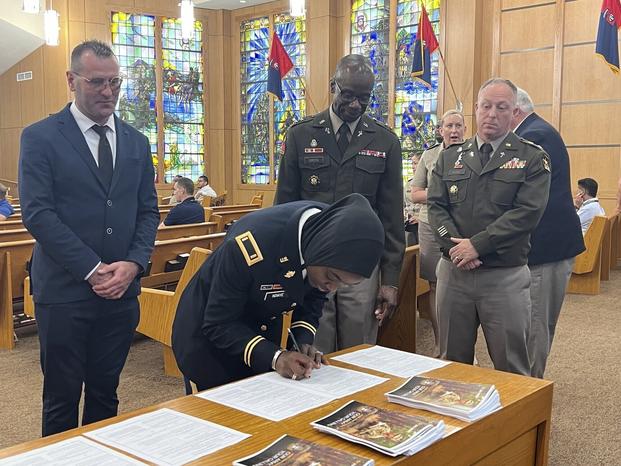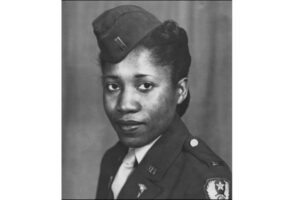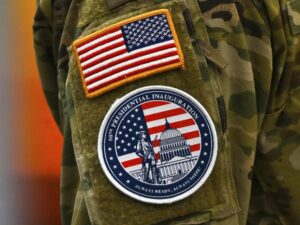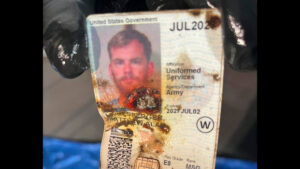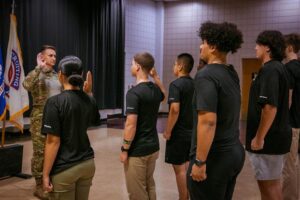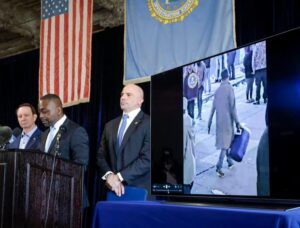A Historic Moment at Fort Liberty Chapel
Against the backdrop of a historic milestone, 2nd Lt. Khady Ndiaye made headlines as she became the first Muslim woman to be commissioned as a chaplain candidate by the U.S. Army at Fort Liberty in North Carolina. Maj. Gen. Bill Green, the Army’s chief of chaplains, led the ceremony, emphasizing the chaplaincy’s role in serving over 200 faith communities and the commitment to care for the “entire Army family … regardless of their personal beliefs.”
As the military continues to embrace religious diversity, this philosophy may face challenges if Pete Hegseth, President-elect Donald Trump’s nominee for defense secretary, secures confirmation. Known for his conservative Christian perspectives and critical views on military diversity initiatives, Hegseth’s leadership could reshape the military’s approach to religious inclusion.
Religious Diversity in the U.S. Military
Renowned for its religious diversity, the U.S. military reflects a wide array of faiths among its 1.3 million active-duty troops. Originally dominated by Protestant and Catholic chaplains, the military chaplaincy has evolved to include Jewish, Mormon, Muslim, Hindu, and Buddhist representatives, among others. The Army’s careers-and-jobs website describes its chaplaincy as a “multi-faith program,” emphasizing respect for diverse religious doctrines and the importance of allowing individuals to practice their faiths freely.
Statistics from a 2019 congressional report indicate that approximately 70% of active-duty military personnel identify as Christian, with Catholics making up about 20% and Protestants or other Christians comprising about half. A significant portion, around a quarter, falls into the “other/unclassified/unknown” category, with smaller percentages of atheists, agnostics, Jews, Muslims, and those practicing Eastern religions.
The Impact of Leadership and Diversity Initiatives
Ronit Stahl, a history professor at the University of California at Berkeley and author of “Enlisting Faith: How the Military Chaplaincy Shaped Religion and State in Modern America,” noted the military’s role in fostering religious inclusion. However, she expressed concern that Hegseth’s potential leadership could alter the military’s commitment to religious pluralism, given his emphasis on a particular strand of Christianity.
Meanwhile, Rabbi Scott Klein of the 82nd Airborne Division highlighted progress in promoting interfaith understanding within the military. He suggested that further educational opportunities could help dismantle barriers and misconceptions among service members of different faith traditions.
Controversies Surrounding Hegseth’s Nomination
As Hegseth awaits Senate confirmation, his nomination has sparked debate due to various allegations, including workplace misconduct and financial mismanagement. He has been labeled a potential “Insider Threat” by a fellow service member, and his views on Islam and support for Israel have drawn criticism from groups like the Council on American-Islamic Relations.
Hegseth, a veteran with service in Iraq, Afghanistan, and Guantanamo Bay, has articulated views on America’s Judeo-Christian identity and the role of faith in national defense. His writings and public statements often merge Christian and American identities, prompting concerns from figures like Mikey Weinstein of the Military Religious Freedom Foundation, who criticized Hegseth’s stance on Christian dominance.
While some veterans, like Damon Friedman, have voiced support for Hegseth’s goals of curtailing diversity initiatives, others, including Larry Wilkerson, a retired colonel, argue that embracing diversity is essential for effective leadership within the military.

